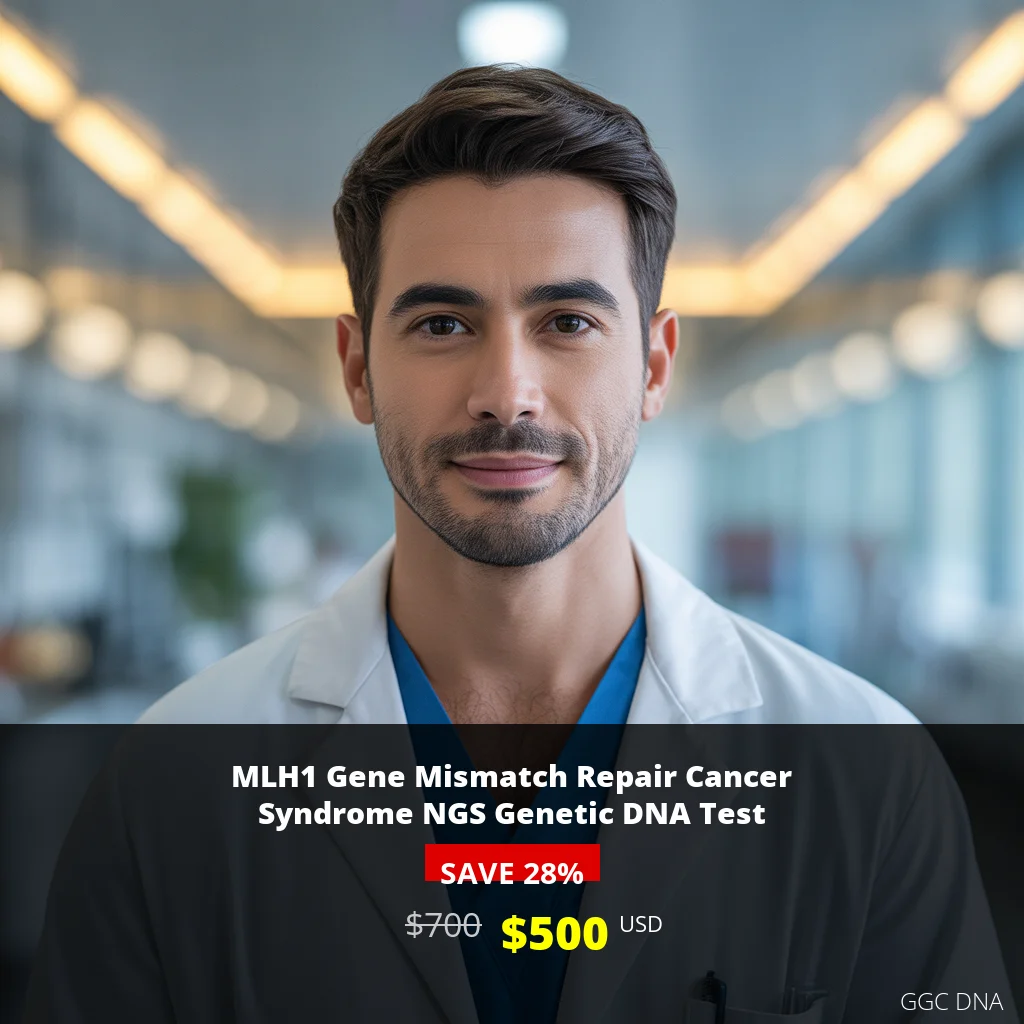MLH1 Gene Mismatch Repair Cancer Syndrome NGS Genetic DNA Test
Comprehensive Genetic Cancer Risk Assessment
The MLH1 Gene Mismatch Repair Cancer Syndrome NGS Genetic DNA Test represents a breakthrough in personalized cancer prevention and risk assessment. This advanced genetic screening specifically targets the MLH1 gene, a crucial component of the DNA mismatch repair system that maintains genomic stability and prevents cancer development. When mutations occur in the MLH1 gene, individuals face significantly elevated risks for developing Lynch syndrome-associated cancers, making early detection through genetic testing essential for proactive healthcare management.
What This Test Measures and Detects
This sophisticated genetic analysis utilizes Next-Generation Sequencing (NGS) technology to comprehensively examine the MLH1 gene for pathogenic variants that disrupt normal DNA mismatch repair functions. The test specifically identifies:
- Point mutations, deletions, and insertions in the MLH1 gene
- Variants associated with Lynch syndrome (hereditary nonpolyposis colorectal cancer)
- Genetic markers that increase susceptibility to colorectal, endometrial, ovarian, gastric, and other cancers
- Inherited mutations that can be passed to future generations
- Specific DNA sequence variations that compromise cellular DNA repair mechanisms
Who Should Consider This Genetic Test
This MLH1 genetic screening is particularly recommended for individuals who meet any of the following criteria:
- Personal history of colorectal cancer diagnosed before age 50
- Family history of Lynch syndrome-associated cancers across multiple generations
- Multiple primary cancers in the same individual
- Endometrial cancer diagnosed before age 50
- Relatives with known MLH1 gene mutations
- Individuals with Amsterdam criteria or revised Bethesda guidelines for Lynch syndrome
- Unexplained family patterns of early-onset cancers
Significant Benefits of MLH1 Genetic Testing
Undergoing MLH1 genetic testing provides numerous advantages for cancer prevention and personalized healthcare:
- Early Risk Identification: Detect genetic predisposition before cancer develops
- Personalized Screening Plans: Tailor cancer surveillance based on genetic risk
- Family Risk Assessment: Identify at-risk relatives who may benefit from testing
- Proactive Prevention Strategies: Implement targeted prevention measures
- Informed Medical Decisions: Make evidence-based choices about treatment and surveillance
- Psychological Relief: Reduce uncertainty through definitive genetic information
Understanding Your Test Results
Your MLH1 genetic test results will fall into one of several categories, each with specific implications:
- Positive Result: A pathogenic mutation is detected, indicating increased cancer risk and the need for enhanced surveillance and preventive measures
- Negative Result: No known pathogenic mutations found, though cancer risk from other genetic or environmental factors may still exist
- Variant of Uncertain Significance (VUS): A genetic change with unknown clinical significance is identified, requiring ongoing monitoring and potential family studies
- No Mutation Detected: In families with known Lynch syndrome, this result may indicate you didn’t inherit the familial mutation
All results should be discussed with a qualified genetic counselor or oncologist who can provide personalized interpretation and recommendations based on your specific situation and family history.
Test Pricing and Availability
| Price Type | Amount (USD) |
|---|---|
| Discount Price | $500 |
| Regular Price | $700 |
Nationwide Accessibility
We proudly serve patients across the United States with convenient testing locations in all major metropolitan areas including New York, Los Angeles, Chicago, Houston, Phoenix, Philadelphia, San Antonio, San Diego, Dallas, San Jose, and many other cities. Our network of certified genetic testing facilities ensures consistent, high-quality service regardless of your location.
Take Control of Your Genetic Health Today
Don’t wait to gain valuable insights into your cancer risk profile. The MLH1 Gene Mismatch Repair Cancer Syndrome NGS Genetic DNA Test provides critical information that can guide your healthcare decisions for years to come. Our team of genetic specialists is ready to support you through every step of the testing process, from pre-test counseling to result interpretation and follow-up care planning.
Ready to schedule your genetic cancer screening? Call our dedicated genetic testing specialists at +1(267) 388-9828 or book your appointment online today. Take the first step toward personalized cancer prevention and peace of mind.







